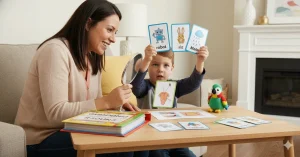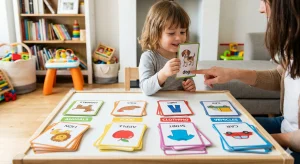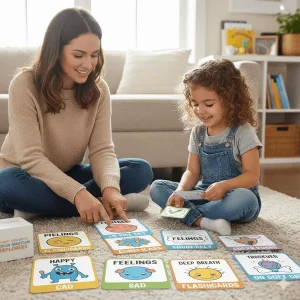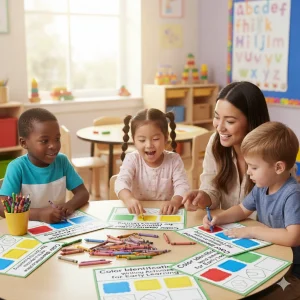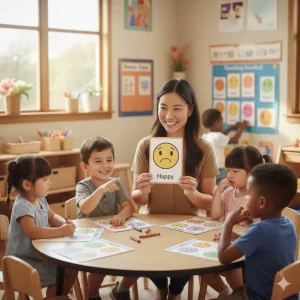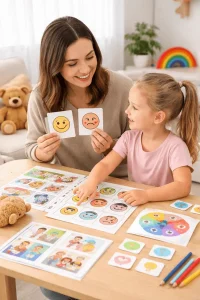Understanding Relational Life Therapy: A Guide
By Prapoorna M
Last Updated: September 12, 2024
Welcome to our comprehensive guide on Relational Life Therapy (RLT), an innovative approach to couples counseling and relationship therapy. Whether you’re navigating the complexities of a long-term relationship or seeking to improve your connection with your partner, RLT offers valuable insights and techniques that can help.
In today’s fast-paced world, maintaining a healthy and fulfilling relationship can be challenging. This is where Relational Life Therapy comes into play. Developed by Dr. Terrence Real, RLT addresses the underlying patterns and behaviors that often lead to conflict and dissatisfaction in relationships. By focusing on these core issues, RLT helps couples foster deeper intimacy, improved communication, and lasting harmony.
What is Relational Life Therapy?
Definition and Purpose of Relational Life Therapy
Relational Life Therapy (RLT) is a specialized form of relationship therapy developed by Dr. Terrence Real. It focuses on helping couples identify and change dysfunctional patterns that negatively impact their relationships. Unlike traditional therapy, which may address individual issues, RLT specifically targets the relational dynamics between partners. This approach empowers couples to understand and resolve conflicts, enhance intimacy, and foster deeper connections.
RLT aims to break down the societal roles and expectations that often hinder authentic and fulfilling relationships. By encouraging personal accountability and open communication, RLT helps individuals and couples create a more balanced and respectful partnership. The ultimate goal of RLT is to build strong, loving relationships grounded in mutual respect and equality.
Primary Goals and Outcomes of Relational Life Therapy
The primary goals of Relational Life Therapy are to:
- Improve Communication: Helping couples develop effective communication skills to express their needs and resolve conflicts.
- Enhance Intimacy: Encouraging deeper emotional and physical connections between partners.
- Foster Accountability: Promoting personal responsibility for one’s actions and their impact on the relationship.
- Achieve Balance and Equality: Striving for a balanced dynamic where both partners feel valued and respected.
How Does Relational Life Therapy Work?
Relational Life Therapy (RLT) is a dynamic and practical approach to relationship therapy that focuses on improving communication, fostering personal accountability, and challenging societal norms that impact relationships. Here, we’ll explore the core principles and techniques used in RLT, its emphasis on personal accountability, and how it navigates societal expectations to create healthier relationships.
Core Principles and Techniques Used in RLT
At the heart of Relational Life Therapy are several core principles designed to transform how couples interact and connect. These include:
- Directness and Honesty: RLT encourages open, honest, and direct communication between partners. Therapists help couples express their feelings and needs without fear of judgment or retaliation.
- Personal Accountability: Individuals are guided to take responsibility for their actions and their impact on the relationship. This involves recognizing one’s faults and working towards positive change.
- Active Engagement: Unlike traditional therapies that may focus primarily on talk, RLT is action-oriented. Therapists actively engage with couples, offering practical advice and exercises to implement in their daily lives.
- Therapist Transparency: RLT therapists often share their own experiences and struggles, creating a more relatable and authentic therapeutic environment.
The Role of Personal Accountability and Communication Improvement
One of the foundational aspects of RLT is the emphasis on personal accountability. This principle requires individuals to own their behaviors and understand how these behaviors affect their partner and the relationship as a whole. By fostering accountability, RLT helps partners move away from blame and towards constructive problem-solving.
Communication improvement is another critical component of RLT. Many relationships suffer due to poor communication habits, such as avoiding difficult conversations or expressing needs in unproductive ways. RLT teaches couples effective communication techniques, including:
- Active Listening: Truly hearing and understanding a partner’s perspective without interrupting or judging.
- Clear Expression: Communicating needs and feelings clearly and directly, avoiding passive-aggressive or ambiguous language.
- Constructive Feedback: Offering feedback in a way that is supportive and aimed at growth rather than criticism.
How RLT Addresses Societal Roles and Expectations in Relationships
Societal norms and expectations often dictate how individuals behave in relationships. RLT addresses these influences by helping couples recognize and challenge the roles they have unconsciously adopted. This involves:
- Identifying Societal Pressures: Understanding how cultural expectations shape behaviors and beliefs about gender roles, power dynamics, and relationship norms.
- Breaking Free from Conformity: Encouraging individuals to shed societal expectations that do not serve their relationship, fostering a more authentic and fulfilling connection.
- Embracing True Selves: Allowing partners to express their true selves without fear of judgment or societal backlash.
Explanation of the Cycle of Harmony, Disharmony, and Repair in Relationships
RLT posits that all relationships go through a natural cycle of harmony, disharmony, and repair. Understanding this cycle is crucial for maintaining a healthy and resilient relationship:
- Harmony: This is the phase where partners feel connected, understood, and valued. Communication flows smoothly, and conflicts are minimal.
- Disharmony: Conflicts arise, misunderstandings occur, and partners may feel disconnected or frustrated. This phase is a natural part of any relationship and should be viewed as an opportunity for growth.
- Repair: Effective repair involves addressing the issues that caused disharmony, taking responsibility for one’s actions, and working together to rebuild trust and intimacy.
Key Differences Between RLT and Traditional Therapy
Understanding the distinctions between Relational Life Therapy (RLT) and traditional therapy approaches is crucial for those considering different options for relationship counseling. Here, we’ll explore how RLT sets itself apart with its unique methods and techniques and its emphasis on direct action and confrontation.
Comparison of RLT with Traditional Talk Therapy
Traditional talk therapy often involves exploring personal histories, emotional patterns, and mental health issues through conversation. While this approach can be highly effective for individual therapy, it sometimes falls short in addressing relational dynamics. In contrast, Relational Life Therapy focuses specifically on the interactions between partners and the impact of these interactions on the relationship.
Key differences include:
- Focus: Traditional therapy may concentrate on individual experiences and emotions, while RLT zeroes in on the relationship as a whole.
- Therapist Role: Traditional therapists often act as neutral facilitators, whereas RLT therapists take a more active and directive role.
- Therapeutic Goals: Traditional therapy aims to achieve personal insight and emotional healing, while RLT aims to transform relational patterns and improve communication between partners.
Unique Approaches and Techniques in RLT
RLT employs several unique techniques that differentiate it from other therapeutic methods:
- Relational Mindfulness: Encouraging partners to become aware of their interactions and the impact of their behavior on the relationship.
- Relational Interventions: Using specific exercises and interventions to address relational issues directly and in real time.
- Transparency and Authenticity: RLT therapists often share their own experiences to create a more relatable and authentic therapeutic environment.
The Emphasis on Direct Action and Confrontation in RLT
One of the most distinctive aspects of Relational Life Therapy is its emphasis on direct action and confrontation. Unlike traditional therapy, which may avoid confrontation to maintain a safe therapeutic space, RLT embraces it as a tool for change.
Key elements include:
- Direct Confrontation: RLT therapists address problematic behaviors head-on, encouraging clients to face and resolve issues directly.
- Action-Oriented Therapy: Clients are urged to take immediate and practical steps to improve their relationship rather than solely focusing on understanding their issues.
- Accountability: Clients are held accountable for their actions and their contributions to relational problems, fostering a sense of responsibility and commitment to change.
Benefits of Relational Life Therapy
Relational Life Therapy (RLT) offers numerous benefits that can significantly enhance the quality of your relationship. Let’s explore how RLT can help improve communication and intimacy, deepen the understanding of personal and partner patterns, foster long-term satisfaction and happiness, and promote empowerment and personal growth.
Improved Communication and Intimacy in Relationships
One of the primary benefits of Relational Life Therapy is its ability to improve communication between partners. Effective communication is the cornerstone of a healthy relationship. RLT teaches couples how to express their needs and feelings openly and honestly, creating an environment where both partners feel heard and valued. This leads to:
- Enhanced Intimacy: By fostering open communication, RLT helps partners connect on a deeper emotional level, strengthening their bond and intimacy.
- Conflict Resolution: Improved communication skills enable couples to address and resolve conflicts more effectively, reducing misunderstandings and fostering a more harmonious relationship.
Enhanced Understanding of Personal and Partner’s Patterns
RLT encourages individuals to explore and understand the relational patterns they bring into their relationships. These patterns often stem from early family experiences and societal influences. By recognizing and addressing these patterns, couples can:
- Break Negative Cycles: Identifying destructive patterns allows couples to break free from negative cycles that hinder their relationship.
- Develop Empathy: Understanding each other’s patterns fosters empathy and compassion, helping partners support each other’s growth and development.
Long-Term Relationship Satisfaction and Happiness
Relational Life Therapy aims to create lasting changes that lead to long-term satisfaction and happiness in relationships. The focus on personal accountability, effective communication, and relational mindfulness helps couples build a strong foundation for a fulfilling partnership. Benefits include:
- Sustained Harmony: Couples learn to navigate the natural cycles of harmony, disharmony, and repair, ensuring that conflicts are resolved constructively and do not erode the relationship.
- Deepened Connection: The tools and techniques learned in RLT help couples maintain a deep and meaningful connection over time, enhancing their overall happiness and satisfaction.
Empowerment and Personal Growth
RLT not only benefits the relationship but also promotes individual empowerment and personal growth. By taking responsibility for their actions and understanding their impact on the relationship, individuals can:
- Build Self-Awareness: Increased self-awareness leads to personal growth and the ability to make positive changes in one’s behavior and interactions.
- Foster Confidence: Empowerment through RLT helps individuals feel more confident in their ability to contribute positively to the relationship and navigate challenges effectively.
Benefits of Relational Life Therapy
| Benefit | Description |
|---|---|
| Improved Communication | Enhances effective expression and understanding between partners. This includes learning to articulate needs and feelings clearly, as well as developing active listening skills to better understand each other’s perspectives. |
| Enhanced Intimacy | Fosters deeper emotional and physical connections. RLT helps couples build trust and vulnerability, creating a safe space for sharing and connecting on a deeper level, both emotionally and physically. |
| Long-Term Satisfaction | Promotes lasting happiness and harmony in relationships. By addressing underlying issues and fostering mutual respect and understanding, RLT aims to create a stable and satisfying partnership that endures over time. |
| Personal Growth | Encourages self-awareness and personal development. RLT helps individuals recognize and change negative patterns, promoting personal accountability and growth, which contributes to a healthier relationship dynamic. |
Common Issues Addressed by Relational Life Therapy
Relational Life Therapy (RLT) is designed to tackle a wide range of issues that can arise in relationships. By focusing on the core dynamics between partners, RLT helps to resolve conflicts, address deep-seated issues, and promote personal growth. Here, we’ll explore some of the most common issues addressed by RLT.
Relationship Conflicts and Communication Issues
One of the primary areas in which Relational Life Therapy excels is in resolving relationship conflicts and improving communication. Many couples struggle with misunderstandings, arguments, and a lack of effective communication. RLT addresses these issues by:
- Enhancing Communication Skills: Teaching partners how to express their needs and feelings openly and honestly while also learning to listen actively and empathetically.
- Conflict Resolution: Providing tools and techniques to resolve conflicts constructively, preventing them from escalating into bigger problems.
- Breaking Negative Patterns: Identifying and breaking harmful communication patterns that can lead to persistent conflicts.
Family of Origin Issues and Their Impact on Relationships
Family of origin issues refers to the patterns, behaviors, and beliefs that individuals carry from their upbringing into their adult relationships. These issues can significantly impact how partners interact with each other. RLT helps couples to:
- Identify Root Causes: Uncovering how early family experiences shape current relationship dynamics.
- Address Unconscious Patterns: Bringing to light unconscious patterns that may be damage the relationship and working to change them.
- Heal Past Wounds: Facilitating the healing of past emotional wounds that affect present interactions.
Individual Relationship Conflicts and Personal Growth
In addition to addressing issues between partners, Relational Life Therapy also focuses on individual growth and development. Personal conflicts and unresolved issues can hinder a relationship’s progress. RLT assists individuals by:
- Promoting Self-Awareness: Encouraging individuals to understand their own behaviors, triggers, and emotional responses.
- Fostering Accountability: Helping individuals take responsibility for their actions and their impact on the relationship.
- Encouraging Personal Growth: Supporting personal development and the pursuit of individual goals, which can enhance the overall relationship dynamic.
Common Issues Addressed by Relational Life Therapy
| Issue | Description |
|---|---|
| Relationship Conflicts | Resolves conflict through effective communication and conflict resolution skills. RLT teaches couples how to communicate openly and honestly, helping them to understand each other’s perspectives and find mutually satisfying solutions to their disagreements. |
| Family of Origin Issues | Addresses early family experiences that impact current relationships. RLT helps individuals recognize how their upbringing and family dynamics influence their current relational behaviors, enabling them to break free from negative patterns inherited from their families. |
| Individual Relationship Conflicts | Helps individuals understand and change negative relational patterns. RLT focuses on personal accountability and growth, assisting individuals in identifying and altering behaviors that contribute to relational conflicts, leading to healthier and more fulfilling relationships. |
Who Can Benefit from Relational Life Therapy?
Relational Life Therapy (RLT) is a versatile and effective approach to relationship counseling that can benefit a wide range of individuals and groups. Whether you are a couple looking to improve your relationship, an individual seeking to understand your relational patterns or part of a family or community aiming for balance and respect, RLT offers valuable tools and insights. Let’s explore who can benefit from this therapy.
Couples Seeking to Improve Their Relationships
Couples often face various challenges that can strain their relationship, such as communication breakdowns, unresolved conflicts, and emotional distance. Relational Life Therapy can help couples by:
- Enhancing Communication: Teaching effective communication skills to ensure both partners feel heard and understood.
- Resolving Conflicts: Providing tools and techniques for constructive conflict resolution, preventing issues from escalating.
- Strengthening Intimacy: Encouraging deeper emotional and physical connections to foster a stronger bond.
Individuals Wanting to Understand Their Relational Patterns
Even if you are not currently in a relationship, Relational Life Therapy can be highly beneficial. Many individuals carry patterns from their past that impact their present and future relationships. RLT helps individuals by:
- Increasing Self-Awareness: Identifying and understanding the relational patterns and behaviors developed over time.
- Promoting Personal Growth: Encouraging personal development and the pursuit of healthier relational dynamics.
- Building Better Future Relationships: Equipping individuals with the skills and insights needed to form and maintain healthy relationships in the future.
Families and Communities Aiming for Balanced and Respectful Relationships
Relational Life Therapy is not limited to couples and individuals; it can also be beneficial for families and communities striving for balance and respect. RLT can help families and communities by:
- Addressing Family Dynamics: Understanding how family of origin issues affect current family relationships and working to resolve these issues.
- Fostering Mutual Respect: Promoting values of equality and respect within families and communities, ensuring that all members feel valued.
- Improving Communication: Teaching effective communication techniques that can be applied within family units and larger community settings.
Steps Involved in Relational Life Therapy
Understanding the steps involved in Relational Life Therapy (RLT) can help you see how this therapeutic approach works to improve relationships. RLT is structured yet flexible, allowing therapists to tailor the process to each couple’s unique needs. Here’s a breakdown of the key steps in RLT:
Initial Assessment and Identification of Issues
The first step in Relational Life Therapy is the initial assessment. During this phase:
- Initial Consultation: The therapist meets with the couple to discuss their relationship, including any concerns, conflicts, and goals.
- Identification of Issues: Through discussion and observation, the therapist identifies the core issues affecting the relationship. This could include communication breakdowns, unresolved conflicts, and negative relational patterns.
- Setting Goals: The couple and therapist collaboratively set goals for therapy, outlining what they hope to achieve through RLT.
Development of a Tailored Therapy Plan
After the initial assessment, the therapist develops a tailored therapy plan. This plan is customized to address the specific needs and goals of the couple. It includes:
- Therapeutic Techniques: The therapist selects appropriate techniques and exercises that will be most effective for the couple’s issues.
- Session Structure: The plan outlines the structure of the therapy sessions, including frequency and duration.
- Progress Milestones: Key milestones are established to track progress and ensure that the therapy is on the right track.
Regular Therapy Sessions and Progress Evaluations
Regular therapy sessions are the core of Relational Life Therapy. During these sessions:
- Ongoing Therapy: The couple engages in therapy sessions where they practice communication techniques, explore relational patterns, and work on resolving conflicts.
- Progress Evaluations: The therapist regularly evaluates the couple’s progress, adjusting the therapy plan as needed to ensure continuous improvement.
- Feedback and Adjustments: The couple provides feedback on their experiences and any challenges they encounter, allowing the therapist to make necessary adjustments to the therapy approach.
Techniques and Exercises Used During Therapy
Relational Life Therapy employs a variety of techniques and exercises designed to improve relational dynamics. Some common techniques include:
- Role-Playing: Couples practice real-life scenarios to improve their communication and conflict resolution skills.
- Mindfulness Exercises: Techniques that promote awareness of relational patterns and emotional responses, helping couples stay present and engaged.
- Communication Drills: Structured exercises that teach effective communication strategies, such as active listening and clear expression of needs.
- Homework Assignments: Couples are often given tasks to complete between sessions, reinforcing the skills and techniques learned in therapy.
Concerns and Limitations of Relational Life Therapy
While Relational Life Therapy (RLT) offers many benefits, it’s important to acknowledge its concerns and limitations. Understanding these can help you make an informed decision about whether RLT is the right approach for your relationship.
Lack of Extensive Empirical Evidence
One of the primary concerns with Relational Life Therapy is the lack of extensive empirical evidence supporting its effectiveness. While many couples and therapists have reported positive outcomes, there is a need for more rigorous scientific studies to validate these anecdotal successes. This lack of extensive research can make it challenging for some individuals to fully trust or commit to this therapeutic approach.
Importance of Finding a Qualified and Experienced RLT Therapist
Given the specific techniques and principles of Relational Life Therapy, it is crucial to work with a qualified and experienced RLT therapist. The effectiveness of RLT largely depends on the therapist’s ability to apply its principles correctly and adapt them to the unique needs of each couple. Here’s why finding the right therapist matters:
- Expertise and Training: A certified RLT therapist has undergone rigorous training and understands the nuances of relational dynamics. They can provide the necessary guidance and support for effective therapy.
- Personal Fit: The therapist’s approach should resonate with both partners. It’s important to find a therapist who can build trust and facilitate open, honest communication.
- Professional Standards: A qualified therapist adheres to professional standards and ethics, ensuring that the therapy is conducted in a safe and supportive environment.
Conclusion
Incorporating Relational Life Therapy (RLT) into your life can be transformative, enabling you to foster healthier and more satisfying relationships. As you take this journey, consider Wellness Hub as your partner in personal and relational growth. We provide access to certified RLT therapists who specialize in enhancing communication, intimacy, and understanding. By choosing Wellness Hub, you’re not just seeking therapy; you’re embarking on a path to deeper connections and enduring relational success. Explore our resources and let us help you achieve the fulfilling relationships you deserve. Visit us today and take a positive step towards a better tomorrow.
Frequently Asked Questions:
1. What is Relational Life Therapy (RLT)?
Relational Life Therapy (RLT) is a form of couples counseling developed by Dr. Terrence Real. It focuses on improving relationships through personal accountability, effective communication, and addressing societal norms that impact relational dynamics.
2. How does Relational Life Therapy work?
RLT works by helping couples identify and change negative patterns in their relationship. It involves direct action and confrontation to address issues, improve communication, and foster deeper connections.
3. Who can benefit from Relational Life Therapy?
Couples seeking to improve their relationships, individuals wanting to understand their relational patterns, and families or communities aiming for balanced and respectful relationships can all benefit from RLT.
4. What are the main techniques used in Relational Life Therapy?
RLT uses various techniques such as role-playing, mindfulness exercises, communication drills, and homework assignments to help couples improve their relational dynamics and resolve conflicts.
5. How is Relational Life Therapy different from traditional therapy?
Unlike traditional talk therapy, which may focus on individual experiences, RLT specifically targets relational dynamics. It emphasizes direct action, personal accountability, and real-time interventions to address and resolve issues.
6. What issues can Relational Life Therapy address?
RLT can address a wide range of issues including relationship conflicts, communication problems, family of origin issues, and individual relational patterns that affect current relationships.
7. What are the benefits of Relational Life Therapy?
The benefits of RLT include improved communication, enhanced intimacy, long-term relationship satisfaction, and personal growth. It helps couples build stronger, healthier relationships.
8. Are there any limitations to Relational Life Therapy?
RLT may not be suitable for young children, individuals with severe mental health issues, or those seeking therapy for non-relational issues. It is important to work with a qualified RLT therapist to ensure the best outcomes.
9. How do I find a qualified Relational Life Therapist?
To find a qualified RLT therapist, you can visit resources like Wellness Hub, which offers a directory of certified therapists and additional information on relationship therapy.
10. What should I expect during a Relational Life Therapy session?
During an RLT session, you can expect to engage in direct and honest communication, practical exercises, and real-time interventions. The therapist will guide you in addressing issues, improving communication, and fostering personal accountability.
About the Author:
Prapoorna Mangalampalli
M.Sc., M.A., (Dual Masters in Psychology & English) – Counselor (6+ years of experience)
Prapoorna armed with a passionate dedication fueled by dual Master’s degrees in Psychology and English, Prapoorna sheds light on and elevates human experiences. Over 6+ years of experience fuel her insightful approach to counseling, offering profound empathy and guidance across diverse areas like online, marital, relationship, child, family, and career counseling. At Wellness Hub, she thrives in a team environment that values innovation, compassion, and achieving results for their clients.
Book your Free Consultation Today
Parent/Caregiver Info:
Client’s Details:
* Error Message

